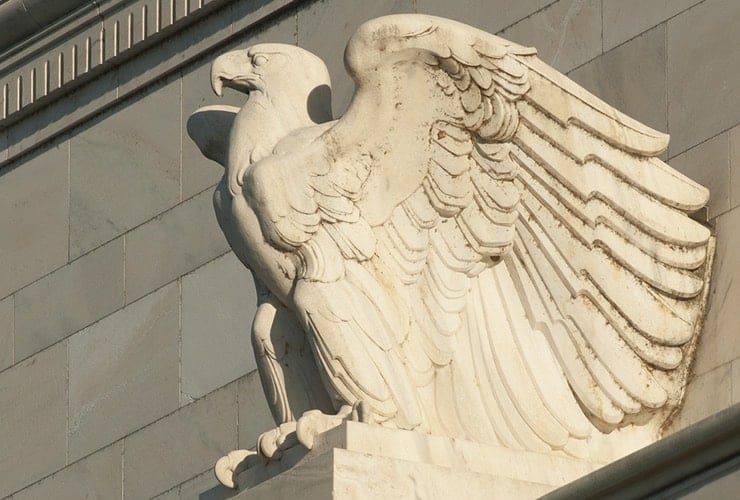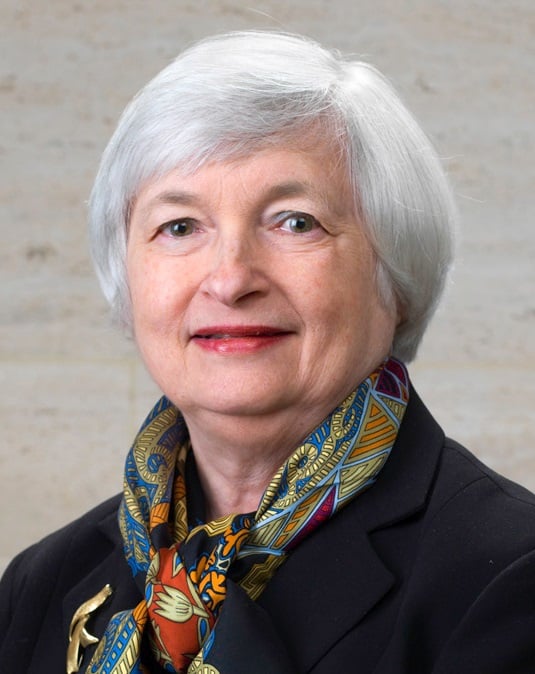Change at the Fed: What Each of the Candidates Could Mean for the US Dollar's Outlook
- Written by: James Skinner
-

The Trump administration will soon appoint fresh faces to the US Federal Reserve and the chosen candidate will have sizeable implications for the Dollar.
Tax reforms, economic numbers and a December rate hike are fast being usurped from their position as dominant drivers of the US Dollar.
Mounting speculation over who will take the helm of the Federal Reserve from February 2018 is now edging them aside and with the discussion evolving, here’s what the debate and each of the respective candidates means for those watching the Pound-to-Dollar exchange rate.
“Speculation about changes to Fed leadership next year has steadily risen, particularly after news reports last Friday that President Trump had met with former Fed Governor Kevin Warsh,” says Michael Hanson, a strategist with TD Securities.
The Fed chair nominee will be decided by President Donald Trump, likely before year-end, following what has already become a many-horse-race.
Given the Federal Reserve’s sway over the fortunes of the US economy, Trump’s eventual choice of candidate is seen as likely to be one whose policy bias supports his own economic agenda.
“Trump would likely expect “his people” at the Fed to support 4% real GDP growth, a rise in manufacturing and blue collar employment, and declining bilateral trade deficits — via a weaker US dollar,” Hanson adds. “This agenda calls for a dovish Fed, not a hawkish one.”
Candidates and Considerations
Current chair Janet Yellen’s four year term expires in February and while her renomination has not been ruled out by the White House, uncertainty over whether she will continue or be replaced by somebody new makes it difficult for markets to price interest rates beyond the very short term.

Fed Chair Janet Yellen (Above). Source: Federal Reserve Gallery.
“We see some chance that Yellen could get a second term as Fed chair. Recall that earlier this year Trump was quoted as saying: “I like [Yellen’s] demeanor. I think she’s done a good job.... I’d like to see rates stay low. She’s historically been a low interest-rate-person.”
TD Securities flags subsequent speculation in US media that Trump has interviewed Janet Yellen in regards to a second term, in addition to having met with Fed governor Jerome (Jay) Powell and National Economic Council director Gary Cohn.
Current Fed governor Jerome Powell (Above). Source: Federal Reserve Gallery.
Another candidate, a strong one from outside the current Federal Reserve board, is former board member and now visiting fellow in economics at the Hoover Institution, Kevin Warsh.
“We see Warsh as the most likely nominee, followed by current Governor Jay Powell. In the nearterm, Warsh would be more hawkish than current Chair Janet Yellen,” says Hanson. “Warsh invariably represents the hawkish side, while Yellen and Powell typically would be seen as more dovish relative to the rest.”
Kevin Warsh. Source: Hoover Institution.
An unprecedented number of new vacant seats on the FOMC, the committee of voters that determines US interest rates, also adds to the uncertainty around future Fed policy and therefore, the Pound-to-Dollar rate.
Stanley Fischer, vice chair of the Fed, is leaving his position this year, creating another vacancy on the panel of rate setters.
“It remains possible that the vice chair — as well as other open slots on the Board — could be filled by someone not currently on the radar,” says Hanson.
Vice Chair Fed Stanley Fischer, with Chair Janet Yellen (Above). Source: Federal Reserve.
The nomination of either Powell or Warsh to the chair position is seen as increasing the odds that somebody like Marvin Goodfriend, Glenn Hubbard, John Taylor or Greg Mankiw is appointed to the vice chair position.
These are all trained macroeconomists whereas Powell and Warsh are both trained lawyers. The idea here is that the White House might feel the need to appoint an economics person to the vice chair position in order to ensure there is balance of expertise on the board.
“Each of these individuals (including Taylor) would likely be more hawkish than Yellen — or even Fischer, with the possible exception of Mankiw,” says Hanson. “In particular, Taylor, Hubbard, and Goodfriend each have criticized the Fed’s post-crisis policies in the past.”
Evolving expectations of how all of these vacancies will or won’t be filled is going to be the biggest driver of price action over the coming months.
But the uncertainty over who will fill key positions and the Trump administration’s preference, or dependence on, a weaker Dollar, will probably favour Pound-to-Dollar buyers during the months ahead - absent further Brexit turmoil.
Get up to 5% more foreign exchange by using a specialist provider by getting closer to the real market rate and avoid the gaping spreads charged by your bank for international payments. Learn more here.
